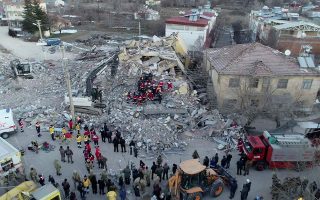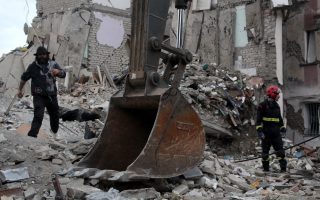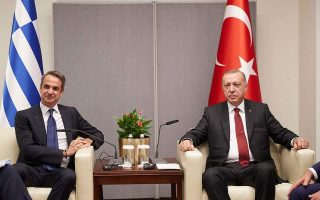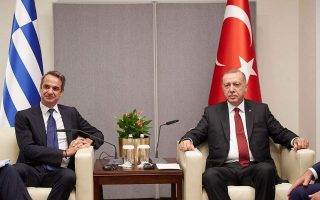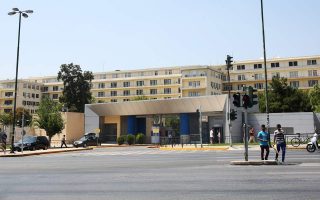An opportunity for ‘earthquake diplomacy’
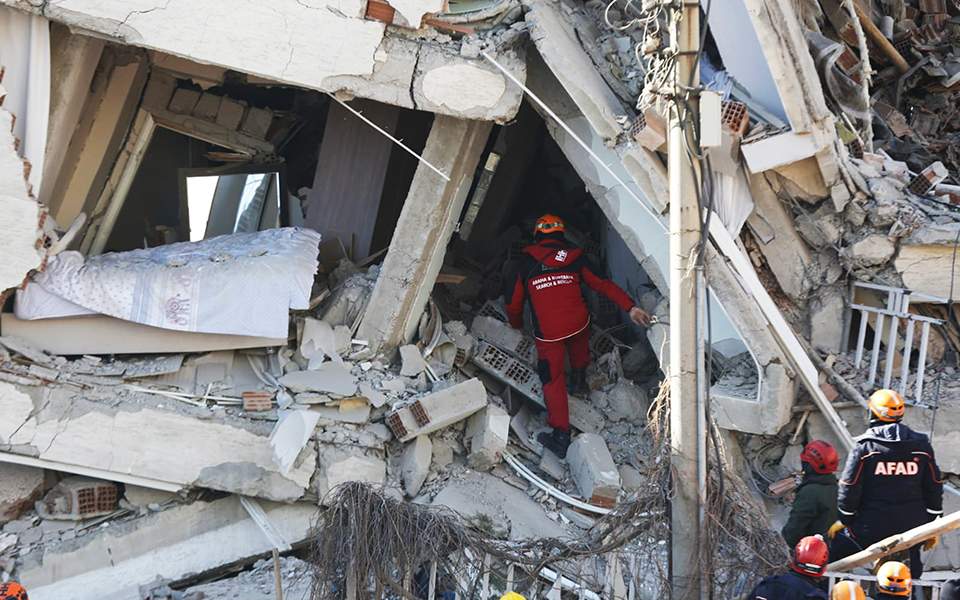
The relatively limited need for foreign assistance following last week's earthquake in Turkey did not provide an opportunity for it to act as icebreaker between Athens and Ankara – given, of course, that certain parties were thus inclined.
Bilateral relations always evolve within a certain environment and last week's quake was a reminder of the devastating 7.6-Richter temblor that struck Turkey's Izmit on August 17, 1999 and the 5.9-Richter earthquake that hit Athens a few days later, on September 7, prompting a thaw and what is known as “earthquake diplomacy.” It was a particularly tense time, coming three years after the Imia crisis and a few months after the row over Kurdish rebel leader Abdullah Ocalan – both of which brought the two countries to the brink of war. After the two quakes, the intentions, rhetoric and in some cases even actions took a different turn.
The problems were not resolved, of course; the Aegean was not suddenly transformed into a symbol of peace. The window of hope is now closed, but that experience has taught us some useful lessons.
With a death toll of 18,000, the 1999 Izmit quake was far more devastating that last Friday's, which resulted in 41 deaths. But the numbers are not the issue. The sense of sincere support that emerged in the immediate Greek response and the sight of Greek rescuers going above and beyond to save Turkish lives remain imprinted on the memories of regular Turkish people. Greeks also flocked to donate blood, a move that was held in high regard by the Turkish people, even though the country's interior minister at the time had said that they “don't want Greek blood.”
Less than a month later, when the Athens quake killed 143 people, rescue teams from Turkey were flown to Greece to help the effort here. The media in both countries broadcast a stream of stories highlighting the support and understanding between the two nations. Within just a few days, this changed the mood dramatically and a climate of friendship emerged from the ruins. Such tragedies also help leaderships normalize relations and reverse a negative and even dangerous climate – if they want to.
After last week's quake, Greek Prime Minister Kyriakos Mitsotakis immediately called Turkish President Recep Tayyip Erdogan to express Greece's “wholehearted sympathy” and to offer assistance in the search and rescue effort. Similar sentiments were expressed by Greek Foreign Minister Nikos Dendias to his Turkish counterpart, Mevlut Cavusoglu, whom he knows since both were representatives at the Council of Europe.
Greece did not need to send any assistance in the end because the damage was relatively limited. But what is clear is that it is up to Erdogan to decide whether he wants to use the opportunity; whether, instead of threats and provocations, he wants to work toward a peaceful coexistence built on the principles of good-neighborly relations and respect for international laws. It would be easy to set discussions in motion toward that goal if that's what he wants.
